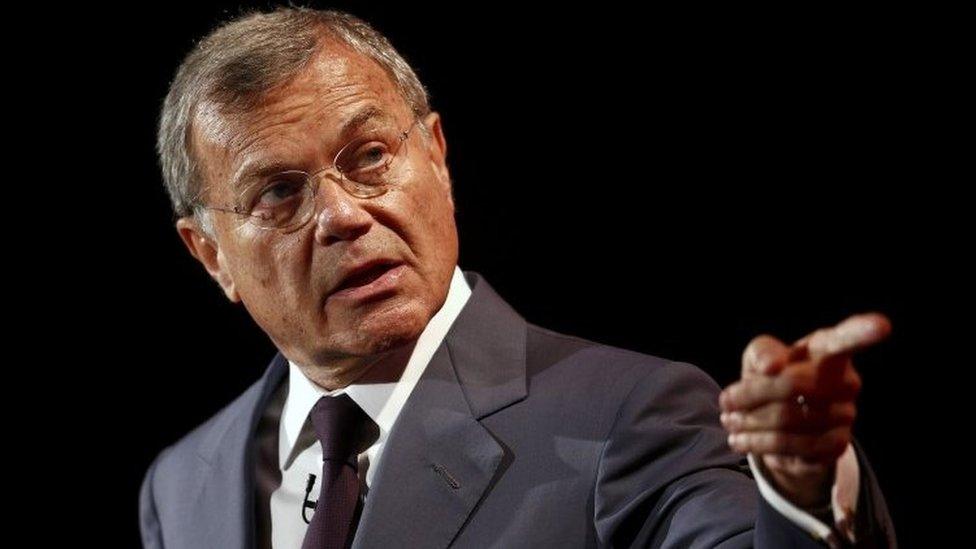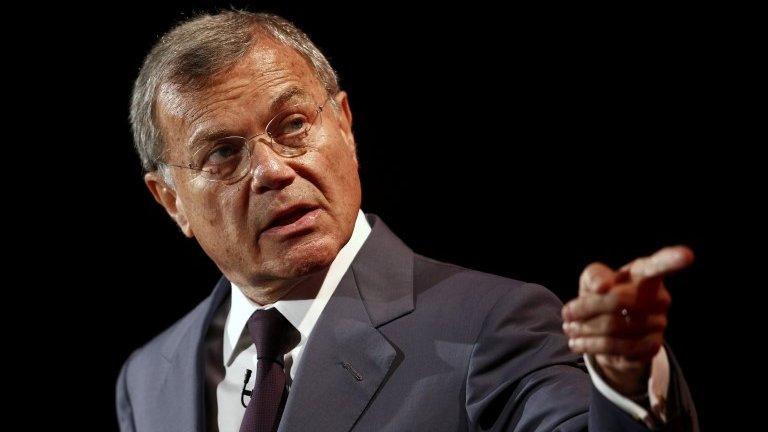WPP pay: Third of investors fail to back Sorrell's £70m deal
- Published

One third of WPP investors have failed to back Sir Martin Sorrell's £70m pay deal at the advertising firm's annual general meeting.
Excluding abstentions, 33.5% of investors failed to back the pay deal, but the vote was non-binding.
The chief executive's 2015 pay package is one of the biggest in UK corporate history.
Sir Martin has previously said his pay was based on the performance of WPP, the world's largest advertising group.
In March, WPP reported, external a 2.8% increase in yearly profit to £1.5bn compared with 2014.
The company's remuneration policy will now face a binding vote by shareholders at next year's annual meeting, and under the firm's new scheme, Sir Martin's pay is set to fall next year.
Asset manager Hermes, a WPP shareholder, said before the vote that it would not support the remuneration package, in part because of "historic concerns about board composition and the remuneration committee's apparent lack of vigour and stress-testing".
This week Campaign group ShareAction said it objected to Sorrell's pay and last week advisory firm PIRC asked WPP shareholders to oppose it.
Recently there has been investor concern about excessive executive pay in a number of companies.
In April, BP shareholders voted against chief executive Bob Dudley's £14m pay deal for 2015 after the company recorded a record annual loss.
In March, WPP defended Sir Martin's pay package by noting that the company's share price had risen by 98% between 2011 and 2015, compared with a 5.8% rise in the FTSE 100 over the same period.
On Wednesday, WPP said sales, profits and revenues were all "well above budget" in the first four months of 2016.
- Published28 April 2016

- Published21 April 2016
